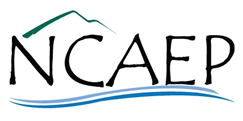Menu
Log in
NC Association of Environmental Professionals |
Login | Reset Password | Links | Photos | Website Terms | NCAEP PO Box #17512 Raleigh, NC 27619 | NCAEP is registered 501(c)3 non-profit that promotes excellence in the environmental profession through events and scholarships. |
Powered by Wild Apricot Membership Software
